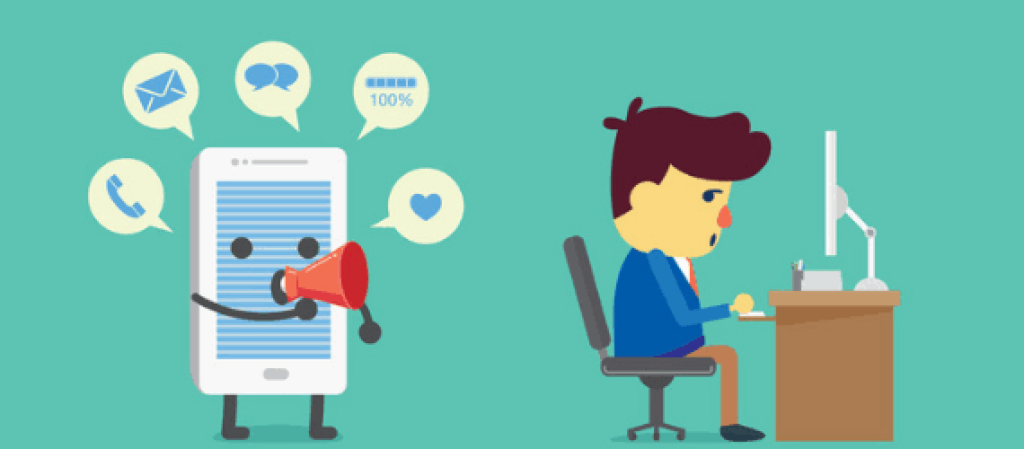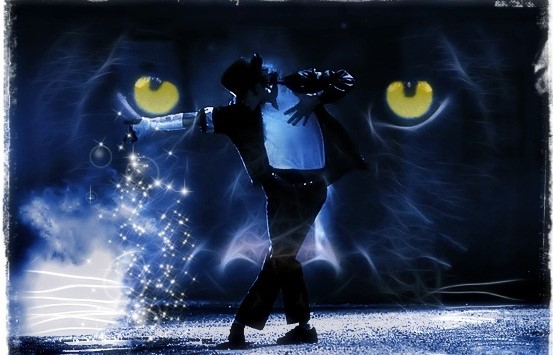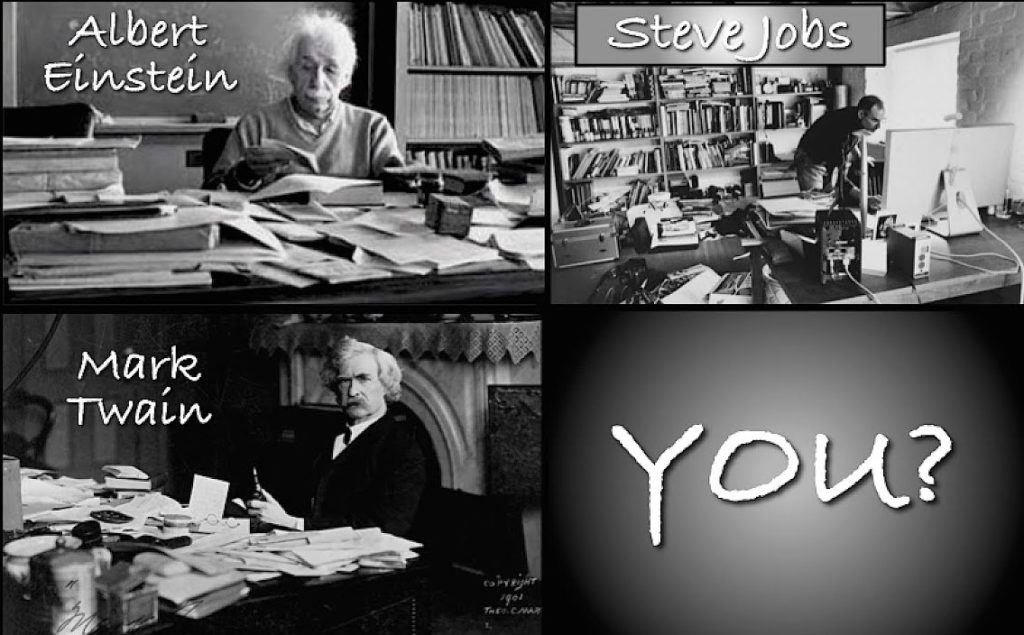
With the rise of digital technology, we’re surrounded by endless sources of distraction. Giving in to distractions once in a while is normal, but if it becomes a habit, we lose the focus and drive to meet our goals. Knowing how to avoid distractions that are stopping you from being successful will set you apart from the crowd and put you on the path to mastery. (Estimated reading time: 8 minutes)
“Focus is more important than genius.”
— Greg McKeown
We live in the most distracting times in human history. With the widespread availability of digital technology and the internet, we’re surrounded by endless sources of distraction: emails, texts, pings from social media, and streaming services for videos, music, and news.
Even with the best intentions at focus, we find ourselves scrolling through social media or grabbing our phones the moment we hear a notification. It makes it almost impossible to avoid distractions.
A study on workplace distractions showed that the typical manager is interrupted every eight minutes, and employees generally spend 28 percent of their time dealing with interruptions.
The simple solution is to turn off the digital stream, but that’s hard for most people because they’re plagued by FOMO, the fear of missing out.
Unplugging from technology leaves a void that can feel uncomfortable if we’ve been hooked. Besides modern devices, there are other sources of distraction in our environments and within ourselves that we must deal with.
While distractions may seem impossible to avoid, we have what it takes to become less susceptible to them. With attention and discernment, we can reclaim our time and focus. In doing so, we clear the pathway toward achieving extraordinary success and results.
Deconstructing distraction: what is it and why is it harmful

The formal definition of a distraction is “a thing that prevents someone from concentrating on something else.” In other words, distractions take us away from what we want to do, whether it’s completing a project, spending time with a loved one, or engaging in a self-care practice.
Giving in to distractions occasionally is normal, but if it becomes a habit, we won’t be able to maintain the focus and creativity required to maximize our potential at work and cultivate high-quality relationships with our friends, family, and significant others.
There’s plenty of evidence showing the damaging effects unmanaged noise can have on our brains and psychological well-being. A study showed that people who were distracted by phone calls and emails saw a 10-point fall in their IQ, which is two times that found in studies on the effect of smoking marijuana. It can also have the same effect as the loss of a night’s sleep.
This happens because the brain is incapable of performing two tasks that involve high-level brain function (strategizing, foresight, prioritizing, working memory, and decision making) at once. The part of our brains that handle these activities, the prefrontal cortex, is an energy hog and has limited capacity.
While some healthy distractions have been shown to benefit our workflow because they get us out of a mental rut called cognitive fixation, the wrong ones drain our mental resources. We quickly burn out when we’re constantly distracted, which rapidly diminishes our power to do our best work
Finding your flow: avoid distractions to access your creative self

The cost of distraction is high when it comes to performance. Not only do distractions take away our time and energy, but they also take away two other abilities essential to success: traction and creative flow.
In his book, “Indistractable: How to Control Your Attention and Choose Your Life,” author Nir Eyal describes traction as any action that moves us towards what we really want, whether that be working on a project, getting enough exercise or sleep, meditating, or listening to music.
“Traction is any action you do with intent. It’s doing what you say you will do,” Eyal writes. Distraction is the opposite of traction because it takes us away from accomplishing what we intend to do with our time.
Distraction is also the main culprit for the disruption of a “flow state.” A flow state is defined as an “optimal state of consciousness where we feel our best and perform our best.” It’s in this state that you become so laser-focused that everything else falls away.
Michael Jackson described it perfectly when he said, “People ask me how I make music. I tell them I just step into it. It’s like stepping into a river and joining the flow. Every moment in the river has its song. So I stay in the moment and listen.”
A flow state is fragile and transient, however, and does not come naturally. We need to be deliberate about it by developing the right structures around our peak times of focus. To induce this state, we need to clean up our inner and outer environments to express our creativity.
Focus: the currency of mastery and genius

Being able to manage our distractions is an essential skill for achieving mastery. It will instantly set you apart from the crowd who are constantly pulled away by menial matters.
Robert Greene, author of “Mastery,” writes that masters excel because they practice harder and move faster through the learning process. This ability is accessible to all of us, but we need to develop two essential traits: the ability to focus deeply on a subject and a strong desire to learn.
While we can all be masters of our chosen craft, Greene states that we must engage in deep work and avoid taking shortcuts and easy routes that involve quick fixes. Instead, our focus should be on taking slow and steady steps towards gaining mastery. He writes:
“It is the height of stupidity to believe that in the course of your short life, your few decades of consciousness, you can somehow rewire the configurations of your brain through technology and wishful thinking. To go against the grain might bring temporary distraction, but time will mercilessly expose your weakness and impatience.”
Historic geniuses like Issac Newton and Richard Feynman, and modern ones like Bill Gates and Steve Jobs, had a superhuman-like ability of solitary focus and keeping distractions at bay.
In his book, “Steve Jobs,” Walter Issacson writes:
“Jobs’s intensity was also evident in his ability to focus. He would set priorities, aim his laser attention on them, and filter out distractions. If something engaged him- the user interface for the original Macintosh, the design of the iPod and iPhone, getting music companies into the iTunes Store-he was relentless. But if he did not want to deal with something – a legal annoyance, a business issue, his cancer diagnosis, a family tug- he would resolutely ignore it.”
There will be hundreds of interruptions in your everyday life that can derail your success and make it hard to avoid distractions. If you have big dreams and aspirations, you must take hold of the steering wheel of your life and eliminate these distractions.
Here are five common distractions and what you can do to avoid distractions and manage them:
1. Technology: We’re flooded with texts, social media notifications, emails, and phone calls throughout the day. On top of that, we use our phones to do other things like listening to podcasts, shopping, or setting reminders. It’s no wonder that we’re inseparable from our devices.
Solution: Overcoming your dependency is not easy, but it’s not impossible. Try scheduling specific times during the day to check your phone. You can also put your phone on airplane mode or use the “do not disturb function.” Another tactic is placing the phone in a place you can’t access easily, such as a drawer or another room. This is an effective way to avoid distractions from technology.
2. People interruptions: Whether you work from an office or home, interruptions from people are unavoidable. A roommate, family member, or coworker can pop into your room for a chit-chat about trivial topics like the weather or the latest episode of “Downton Abbey” and disrupt your flow. Friends may invite you to social events that throw your schedule out of whack.
Solution: Keep your door closed or place a “do not disturb” sign on your door when you’re working. If you’re in an open office space, wear headphones. To ensure that the people in your life don’t feel like you’re ignoring them, block out time in your calendar to meet with them.
3. Environmental distractions (noise and clutter): While ambient sounds and a little clutter have been shown to encourage a creative mindset, too much of it affects our ability to process information and focus. A messy workspace with loud and unpleasant noises in the background pulls you away from being present and causes stress.
Solution: The right amount of noise is different for everyone. Some people prefer the light buzz inside a café, while others need the total silence of an isolated workspace. No matter where you work, keep it clean and organized. Toss out items you don’t need and organize paperwork and supplies so that you can easily access them.

4. Unhealthy lifestyle: It’s almost impossible to focus when we’re unwell or don’t feel balanced. Studies show that a lack of sleep, an unhealthy diet, and not enough physical activity reduce our cognitive abilities. Many people try to overcome the negative effects by consuming excess caffeine and sugar, not realizing that the sudden spikes and dips in blood sugar levels only make things worse.
Solution: Aim to get at least 7-8 hours of sleep every night. Follow a regular exercise regimen, and focus on eating more vegetables, fruits, and high-fiber foods while eliminating junk and processed food. To maximize your natural energy peaks, try creating a schedule based on your circadian rhythms– your body’s natural cycles.
5. Lack of motivation: If you find yourself bored, staring out the window, and asking yourself, “what’s the point of all of this?” there’s a good chance that you’re feeling unmotivated by the task at hand. When you can’t see the bigger picture and how what you’re doing serves your long-term goals, your attention wanes, and you will seek distraction.
Solution: Get clear on how everything you’re investing in is helping you achieve your vision and purpose. You can connect even the most mundane tasks to your values and what you’re working towards. To delve deeper, try journaling or engaging in a practice of reflection such as meditation and mindfulness, or speaking with someone you trust.
The time that you spend working on your craft is sacred. It’s during those precious pockets of time that you become a channel for inspiration, ideas, and breakthroughs. When those moments are woven with a deep sense of purpose and enjoyment, you can be sure that you’re making the best use of your energy to serve your highest calling.
All my best on your journey,
Seline

Question for you: What are the biggest distractions in your life that are stopping you from being successful? What steps are you willing to take to avoid distractions or eliminate them?
Did you like this post? Sign up below, and I’ll send you more awesome posts like this every week.

Nice post. Modern day distraction is the thing now.
All we need is temperance.
Thanks Seline.
You’re welcome, John!
excellent thoughts. Very useful
Glad to hear Olusolo!
Interesting approach to this one. I like the points you make and how you preent this sort of information in a way that makes us stop and think and apply it to our own lives. It has really given me something to think about and look at in my own life- in a way I haven’t before.
I am with you sister! There is always so much to unpack with these posts. I often come back again and again several times to the best ones. Sometimes I just need a few read-throughs to absorb it all and other times I read something again and something new pops out at me! These blogs are like that a lot of the time 🙂
There really is a lot to unpack here isn’t there? So much great information and so many different ways that it can be applied to life in general. I always find it interesting how hearing something- even something i already know and even agree with- in a different way or from a different perspective can so drastically change how it affects me! This blog has done that several times now.